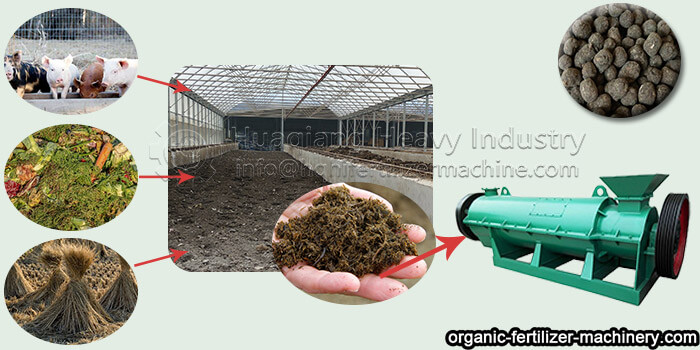Pig manure organic fertilizer granulator is widely used. Using organic fertilizer granulator to make livestock manure into organic fertilizer can not only solve environmental pollution, but also improve soil organic matter. Now many people use pig manure to make organic fertilizer, because pig manure is slightly better than other manure.
Pigs are omnivorous animals, and feces contain less long fiber, so the roundness of particles produced by organic fertilizer granulator will be better. Moreover, the granulator of organic fertilizer has higher strength than that of disc granulator, which is suitable for granulation of organic materials.
Composition of pig manure organic fertilizer granulating machine:
The granulator is composed of cylinder, motor, rotor, transmission and frame.
1. The barrel is divided into three parts: the feed mixing section, the granulation section and the polishing section.
2. It adopts the high-standard electric motor manufactured by our factory, which has the characteristics of strong power, energy saving, stable quality and overload operation.
3. The rotor is divided into three parts: stirring fin, shaft, and stirring fin head. The shaft is divided into three sections: mixing section, granulation section and polishing section. The large shaft adopts special materials and is specially made. The stirring fins are made of special materials, which are hard and wear-resistant, and can be adjusted in length. The stirring fins are made of alloy steel blades.
4. The reducer is made of special materials and processed by special technology. It has the characteristics of high carrying capacity, stable operation, sturdy and durable parts, and safe and stable work.
Granulation process of pig manure organic fertilizer production equipment:
During the feeding period, fine powder and soft particles enter the device and are stirred under the drive of the machine. At the initial stage, relatively small particles are formed. As the basis of granulation, these particles are called cores in industrial production. In the later stirring process, through the agglutination between the nuclei, the covering between the powder and the core, as well as the larger crushing and covering, the larger particles are formed to achieve the purpose of granulation.